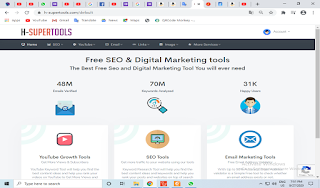How to prepare for a recession according to A.I
In today's article, I'm going to let Jarvis the A.I write this article. I wanted to know what sort of strategy Jarvis would come up with to help prepare for a recession. So I went ahead and had him write this article up. I wrote none of this All I did was write the intro, and my last words, and run it through Grammarly everything else in written by Jarvis. It's quite interesting what Jarvis has written and come up with. So with that being said it's time to get into today's article.
What Jarvis wrote
A recession is a period of economic decline, typically defined as two consecutive quarters of negative economic growth. During a recession, businesses and consumers alike may cut back on spending, which can lead to increased unemployment and decreased production. While no one can predict when a recession will occur, there are steps you can take to prepare for one. Here are a few tips:
1. Review your budget and make necessary adjustments.
If a recession hits, you may need to tighten your belt in terms of spending. Review your budget and see where you can cut back, even by a little bit. This will help you save money in case your income decreases.
2. Build up an emergency fund.
An emergency fund is a savings account that you can tap into in case of a financial emergency, like a job loss or unexpected medical bills. Try to build up your emergency fund so that it can cover at least 3-6 months of living expenses.
3. Invest in commodities
In finance, a commodity is a good which is traded on an authorized commodities exchange. Commodities exchanges are similar to stock exchanges but deal in commodities rather than stocks. These commodities exchanges work as regulated marketplaces for commodities traders.
There are two types of commodity exchanges:
Physical commodity exchanges: These exchanges deal in physical commodities. These are traded in the form of futures contracts. The most popular physical commodity exchanges are the London Metal Exchange (LME), the New York Mercantile Exchange (NYMEX), and the Chicago Board of Trade (CBOT).
Derivatives exchanges: These exchanges deal in derivatives of physical commodities. The most popular derivatives exchanges are the Chicago Mercantile Exchange (CME) and the Intercontinental Exchange (ICE).
When it comes to investing in commodities, there are a few different ways to go about it. You can either invest directly in the commodity itself, or you can invest in companies that produce or use the commodity. If you're looking to invest directly in a commodity, you have a few different options. You can buy futures contracts, which are agreements to buy or sell a commodity at a set price at a future date. You can also buy commodity ETFs, which are exchange-traded funds that track a basket of commodities or a single commodity. Finally, you can invest in commodity mutual funds, which are funds that invest in a variety of commodity-related investments. If you're looking to invest in companies that produce or use commodities, you can do so through a variety of different investments. You can buy stocks in companies that are involved in the commodity market, such as mining companies or oil and gas companies.
My Final Words
If you enjoyed the blog leave a like and share it on social media. Leave me some feedback with your comments to let me know how I did. Let me know what you liked and what you didn't so I can improve the blog. All your likes and comments are deeply appreciated. They motivate me to write more and better blogs and help me expand and help spread the word. Make sure to follow the blog to stay up to date. You can also follow the blog's Instagram where I post daily content as well as letting people know when my new blog post drops and I also give out my crypto trades on there. Then there's also my website where you can put in a submission form to let me know what topics you want me to cover along with other things such as referral codes and affiliate links. Thanks for reading hope you enjoyed it.
Link To My Medium Account






Comments
Post a Comment